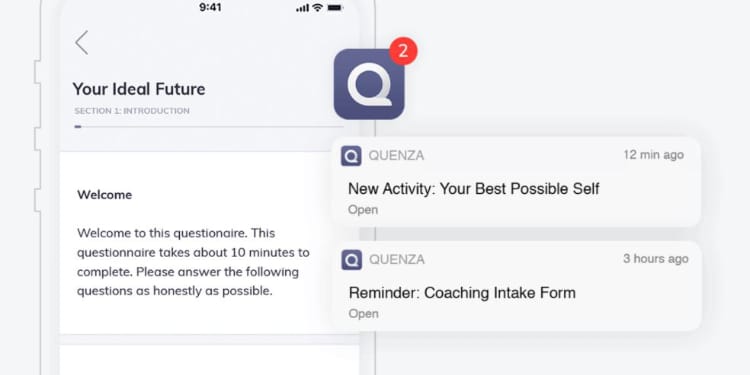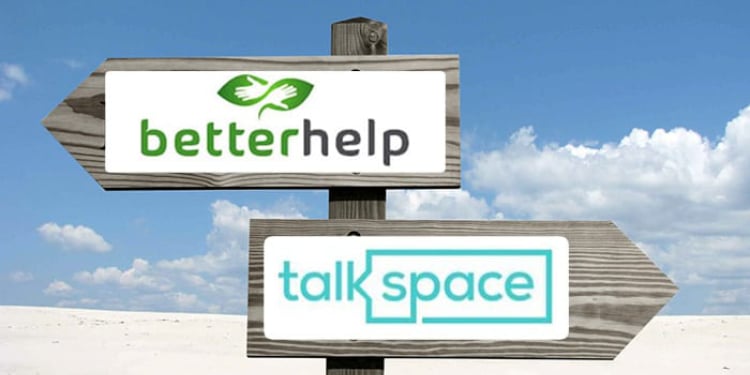










Over the last few years, online therapy has emerged as a new convenient way to provide therapeutic services. With the COVID-19 pandemic, there was a sudden surge in demand but also an intensifying controversy over the efficacy and ethics of whether all mental health concerns could and should be treated in this way. However, the pandemic also provided perspective for those therapists who previously opposed offering teletherapy to their clients.

When it comes to treating eating disorders, research has shown that online therapy can be beneficial. One study found that online therapy for bulimia may be as equally effective as face-to-face treatment but with the caveat that it may take some more time to see progress.[1] Online treatment can therefore be a good option for some people struggling with eating disorders but it may not be right for everyone.
Eating disorders, such as anorexia nervosa and bulimia nervosa, are categorized as persistent unhealthy eating patterns which negatively impact a person’s health. Other disordered eating patterns include excessive exercise to control weight gain and binge eating.
Bulimia may manifest as someone eating a large amount of food in a short period and then inducing themselves to vomit to prevent weight gain. Whereas, anorexia occurs when a person restricts their calorie intake to reduce their weight to an unhealthy level. In both bulimia and anorexia, the fear of gaining weight is intense and pervasive.
Almost any person that is knowingly struggling with a mental health issue will likely say the struggles are hard to handle, and they want the issues resolved. This is the case for nearly everyone, whether they struggle with depression, anxiety, or trauma. However, for those dealing with eating disorders, the issues and concerns may be more complex.
Eating disorders are physically damaging to the body and can be fatal. In fact, they are the second leading mental health cause of death, only behind opioid addiction.[2]
While people with eating disorders want their struggle to be gone, they often do not know how to change their behaviors, or the thought of gaining weight is so terrifying that they may not want to change. Indeed, change is hard for everyone, but when the fundamental act of nourishing your body is the change required, it can be challenging to move forward.
People with eating disorders may be pressured into treatment. Their loved ones often coerce them to see a doctor or therapist. This is one reason that treatment resistance is very high among those struggling with eating disorders.[3]
Teletherapy is beneficial for people struggling with eating disorders as it increases the options for services. Currently, about 45% of people suffering from an eating disorder will not seek treatment.[4] Online treatment may therefore help to decrease this number and improve access to care and specialized treatment. With traditional face-to-face treatment, there is often a delay in starting mental health treatment from the time a phone call is made to the time the appointments happen. Online services help to bridge this delay gap and connect patients with support more quickly.[5]
Online cognitive behavioral therapy (CBT) and group therapy have been shown to treat eating disorders effectively.[1] Other services such as eating disorder recovery apps and online coaches for helping with daily behaviors have also emerged, though no studies were found regarding the efficacy of these tools. More research on this type of support in conjunction with therapy is needed.
When a person is struggling with an eating disorder, there is often shame and anxiety surrounding the disorder and its symptoms. It may be hard to overcome these emotions in order to schedule an appointment and travel to an office. Online treatment can therefore help reduce feelings of shame by allowing the person to remain in their own environment. This may increase access to treatment by those who are less likely to seek it.
Online therapy may be a comfortable place to begin treatment for people with eating disorders. It gives them access to support, information, and change activation. In fact, it may even save a person struggling with an eating disorder and its comorbidities since a therapist can assess a client who may not have been amenable to traditional face-to-face therapy.
While teletherapy can be beneficial in increasing access to treatment, the online format may be challenging for some people. The following are various concerns for treating eating disorders through a digital platform:
The use of online therapy may decrease a person’s ability to connect with their therapist or other group members. Indeed, the online platform can seem impersonal and cause difficulty in developing a therapeutic relationship.
There are some preparations required to ensure a productive teletherapy session, including needing a private space and some minimum technology and understanding. These requirements may create a barrier for some people to access online therapy.
People struggling with eating disorders are at a higher risk of struggling with other mental health issues or ‘comorbidities.’ In fact, there are significant comorbidity rates between eating disorders and other disorders such as major depressive disorder, panic disorder, social anxiety disorder, and personality disorders.[6] Substance use rates are also higher among people with eating disorders.[7] All these issues may make it more difficult to address the full complexity of a person’s symptoms through an online platform and slow down the progress of treatment.
With online sessions, there is a risk that the therapist has a reduced observation ability; that is, they may not see the client fully or not at all if using other devices such as phone or text messaging. This risk may only be important for the small proportion of people with eating disorders who are classified as ‘underweight’, however, this group may be at the highest risk of serious medical concerns due to the eating disorder.[8]
Online therapy for eating disorders can be a beneficial resource for those with limited access or who experience anxiety when considering a meeting with a therapist. It may help to reduce stress by allowing a person to remain in their own space while developing a relationship with their therapist or group.
The controversy around online therapy may continue; however, the evidence indicates that access to care is the most important benefit of online therapy. The COVID-19 pandemic pushed many therapists and clients into treating through an online format. With this experience, there is now an increased understanding of the benefits and challenges of online therapy for all mental health disorders, including eating disorders.
Although there are potential concerns about the efficacy of online therapy for eating disorders, the access to treatment and the introduction of support to a population that historically does not seek support cannot be ignored. In-person therapy may be the better option for some people; whereas, online therapy platforms may be the perfect compromise to meet a person on their terms and begin the treatment process.
References